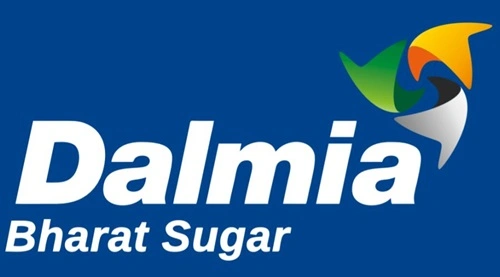Nitin Gadkari, Union Minister of Road Transport and Highways, gave a statement that we will be blending 20% ethanol by 2030 to reduce crude oil exports, control pollution and to increase employment. However, the ethanol story moved from intent to execution years before the final date through the Ethanol Blended Petrol Program, where 20% ethanol was blended in fuel for nationwide use. The government reported an average of 19% on 31 July 2025.
All this became possible with large sugar and grain processors adding distillery capacity, which means they have switched to B-heavy molasses, sugarcane juice, and more for making ethanol. As per reports, ethanol has helped in supporting farmers, ensuring a reasonable MSRP, and employment, along with a reduction in pollution levels.
Here, we will get a deep dive into the top 10 major ethanol manufacturing companies’ data, along with other critical details that may matter to you. Let’s get started:
1) Shree Renuka Sugars (SRSL)

Shree Renuka Sugars is known for its largest installed ethanol and sugar manufacturing companies in India. In the financial year 2023, this company completed the major expansion of its production capacity to around 1,250 KLPD (Kilo Liters Per Day) and focused on efficiency by diverting more canes toward ethanol production. Due to having sugar cane belts integrated with sugar belt and ethanol production, Shree Renuka Sugars deals with lower logistics costs for molasses and juice movement during seasonal times.
2) Balrampur Chinni Mills

With about 1,050 KLPD distillery capacity, Balrampur Chinni Mills marks the second place, as this company has built a balanced sugar-ethanol portfolio. The focus is on B-heavy molasses and cane juice, which raises ethanol output without overproducing sugar. The company’s logistics are efficient because cane catchments and distilleries sit together, cutting feedstock haulage and time loss. During 2024 and 2025, Balrampur signaled steady ethanol supplies under long-term contracts with OMCs while keeping flexibility to swing between sugar and ethanol as prices move.
3) Triveni Engineering & Industries

Triveni Engineering runs its distilleries, which have a total capacity of 850 KLPD, making it the third-largest ethanol manufacturing company. The distillery is situated in Uttar Pradesh, where the units are in different districts like Muzaffarnagar, Rani Nangal, Sabitgarh, Milak, Narayanpur, and more. There is a discussion going on for increasing the capacity from 850 KLPD to 1,100 KLPD. By March 2025, this company will have produced more than 20 crore liters of ethanol, and is looking forward to increasing the number to 24 crores by FY 26.
4) Bajaj Hindusthan Sugar

Bajaj Hindusthan operates 14 distilleries in various districts of Uttar Pradesh with a total ethanol production capacity of more than 800 KLPD. This company runs a large sugarcane crushing operation, which mainly uses the by-product of molasses in the production of ethanol. The company is based in Mumbai, but it plays a crucial role in ethanol production due to its large capacity in northern India.
5) Dalmia Bharat Sugar

Dalmia Bharat Sugar has been in this field for decades, and they have integrated plants in Uttar Pradesh and Maharashtra. The production started from grain-based ethanol with 110 KLPD, and they have increased its capacity to 250KLPD by FY24. The current capacity has not been released in the public domain after the recent expansion. Along with ethanol, the company makes power from bagasse, with 118 MW of generation capacity, and sells extra power to the grid. It supplies ethanol to major oil marketing companies.
6) Dhampur Sugar Mills
Dhampur Sugar Mills was founded in 1933, making it the oldest sugar and ethanol company in Uttar Pradesh due to its distillery capacity of 350 KLPD after the recent expansion. In FY24, ethanol revenue for this company was 24% of its total earnings. This shows the importance of the ethanol business for most sugar-producing companies. In 2025, steady OMC offtake, better juice diversion when prices favour ethanol, and a watch on grain economics are key drivers.
7) Ugar Sugar Works
Ugar Sugar Works is a Karnataka-based sugar-producing company that expanded to ethanol production as well. With the 800 KLPD capacity, Ugar Sugar is a big name. However, the total production numbers are different from their capacity, which makes it rank seventh in our list. However, Ugar Sugar is working on expanding the capacity to aid in regional energy goals.
8) E.I.D-Parry

E.I.D.-Parry India works in the manufacturing of sugar and ethanol operations across South India. It has six sugar plants and five distilleries with a combined ethanol capacity of around 582 KLPD. The company is adding new capacities, 120 KLPD at Haliyal and 45 KLPD at Nellikuppam, adding millions of liters per year. It aims to boost capacity and capitalize on government support for ethanol blending.
9) Godavari Biorefineries

Godavari Biorefineries is a large-scale sugar and ethanol manufacturing company situated in Maharashtra. Recently, this company has invested around ₹130 crores in the development of a corn-based ethanol plant with a manufacturing capacity of 200KLPD. The new plant is expected to start operating in March 2026. This plant will complement its sugarcane operations and expand feedstock diversity. The company is also exploring higher alcohols like biobutanol with new licensing agreements.
10) Bharat Oorja Distilleries
Bharat Oorja Distilleries is the state’s first grain-based plant for the manufacturing of ethanol in Bihar, which is situated in Muzaffarpur and Motipur. This plant has a capacity of producing around 410 KLPD or 150 million liters of ethanol annually. It has created more than 1,200 jobs and portrays the benefit of expanding into ethanol production.
Bottom Line – Why These Companies Stand Out?
These companies combine three things that matter right now. First, the installed and running capacity that can be supplied consistently through ESY 2024-25. Second, feedstock flexibility, with most able to process B-heavy molasses, juice, and increasingly grain. Third, proven logistics, from co-located mills to rail connectivity and proximity to OMC depots. Directly or indirectly, these companies are helping with the development of this country by producing green fuel, creating employment, reducing crude oil imports, and so on.